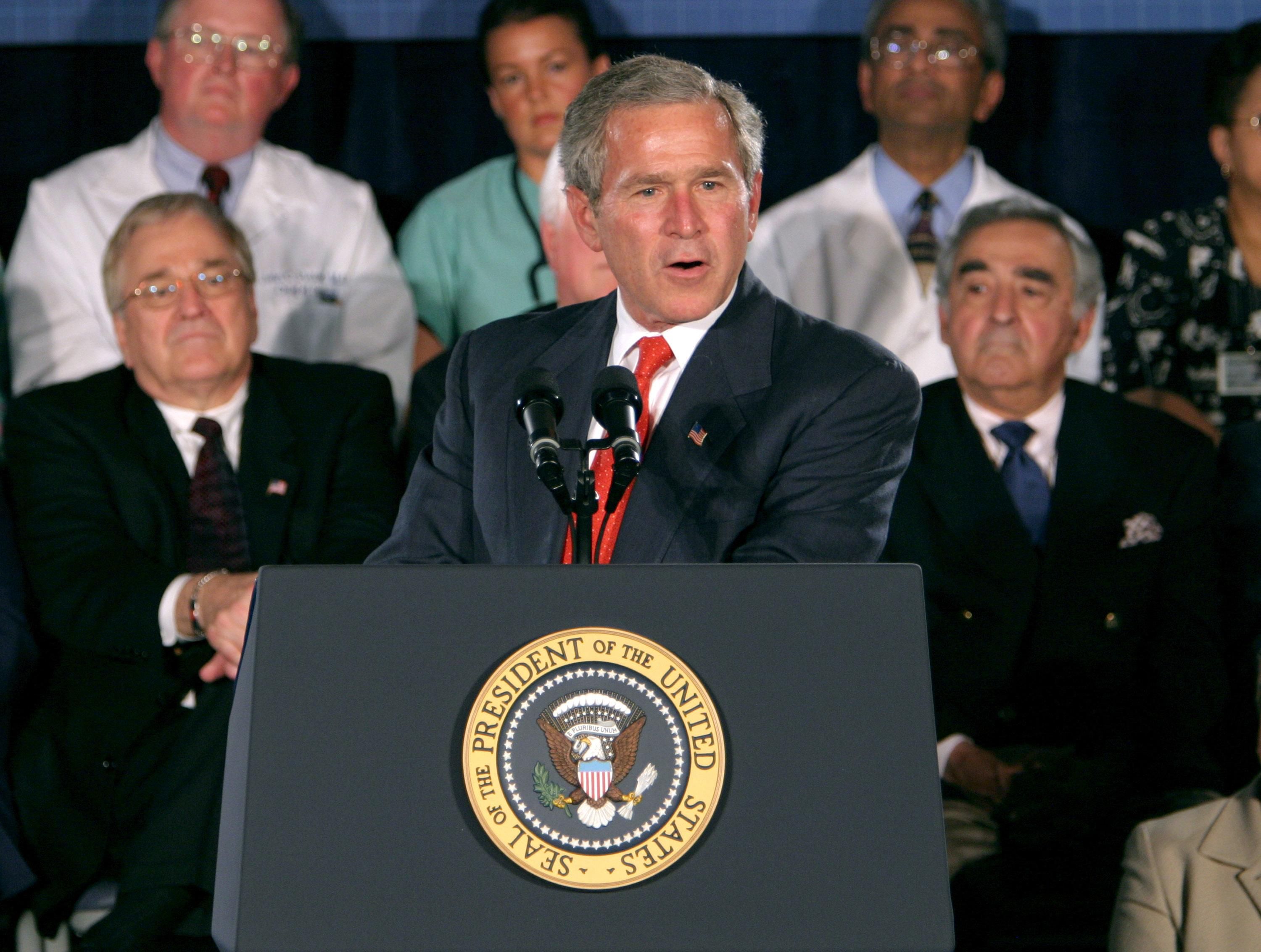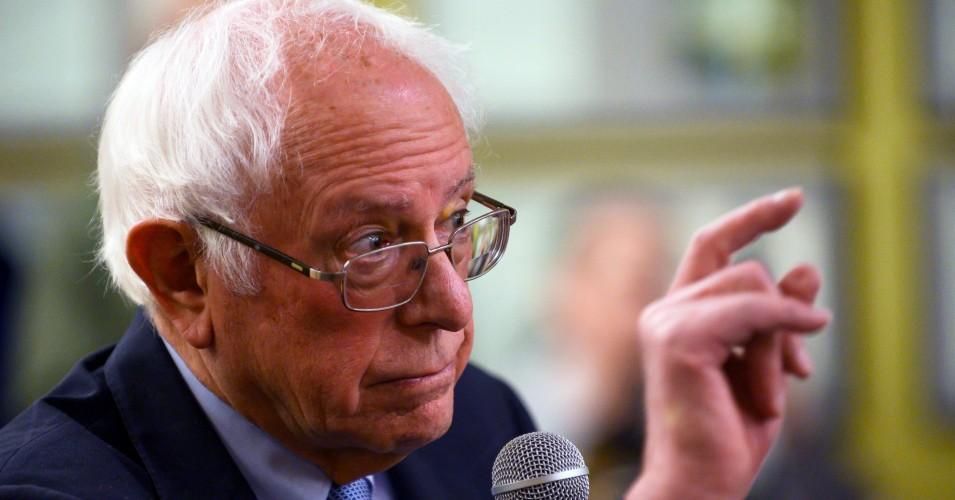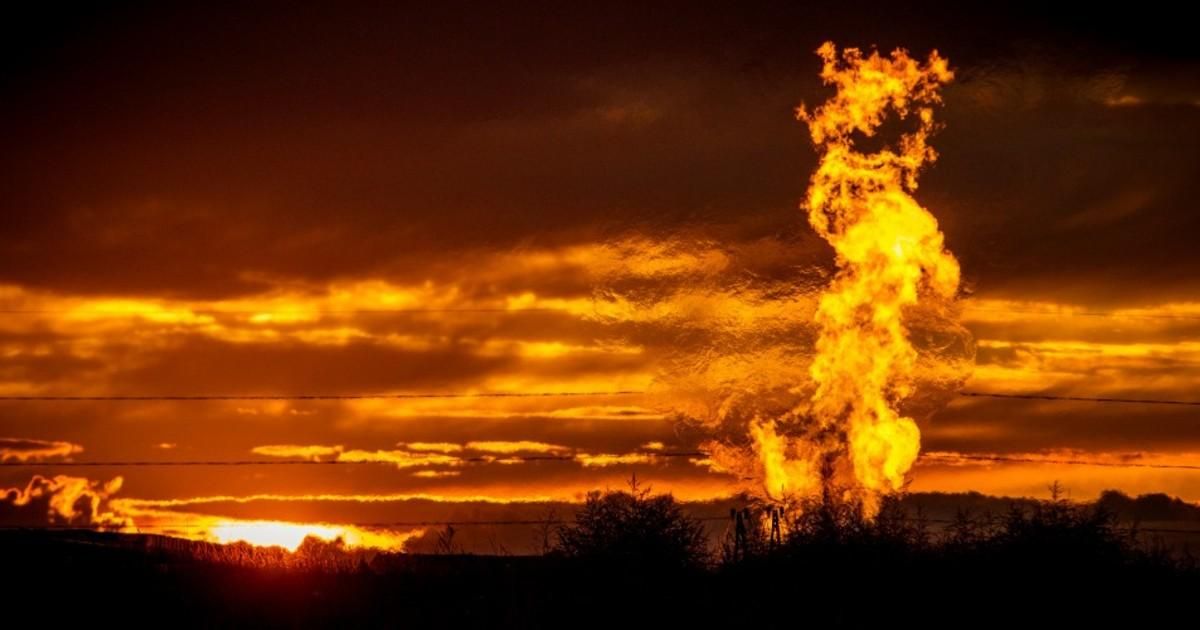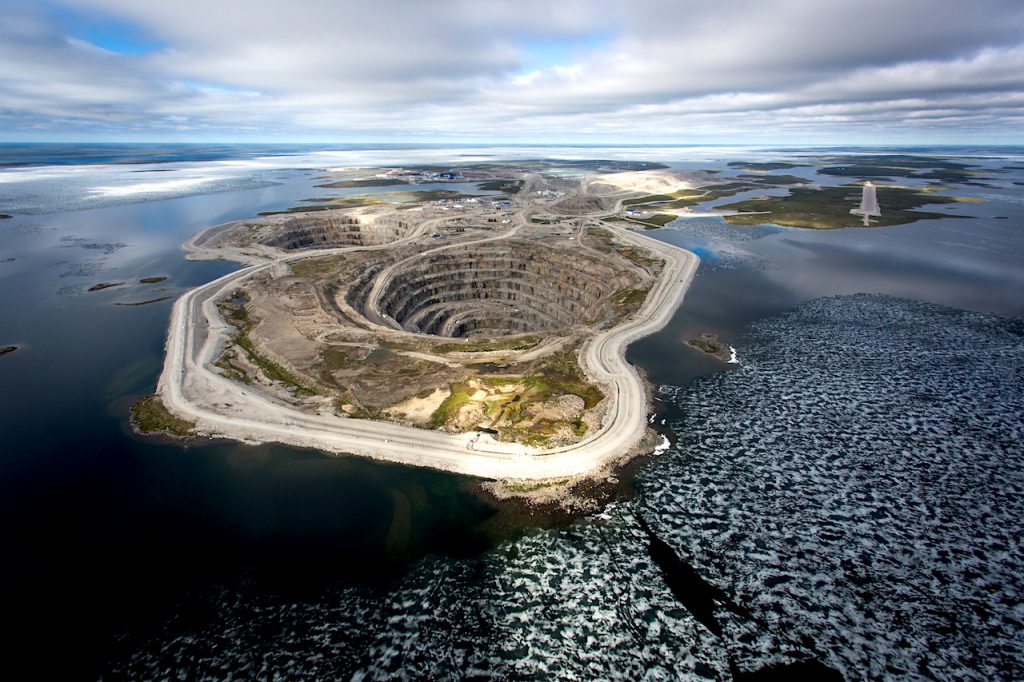"We need a Postal Service board of governors that is committed to replacing Mr. DeJoy with a postmaster general who will protect and strengthen the Postal Service, not undermine and sabotage it."
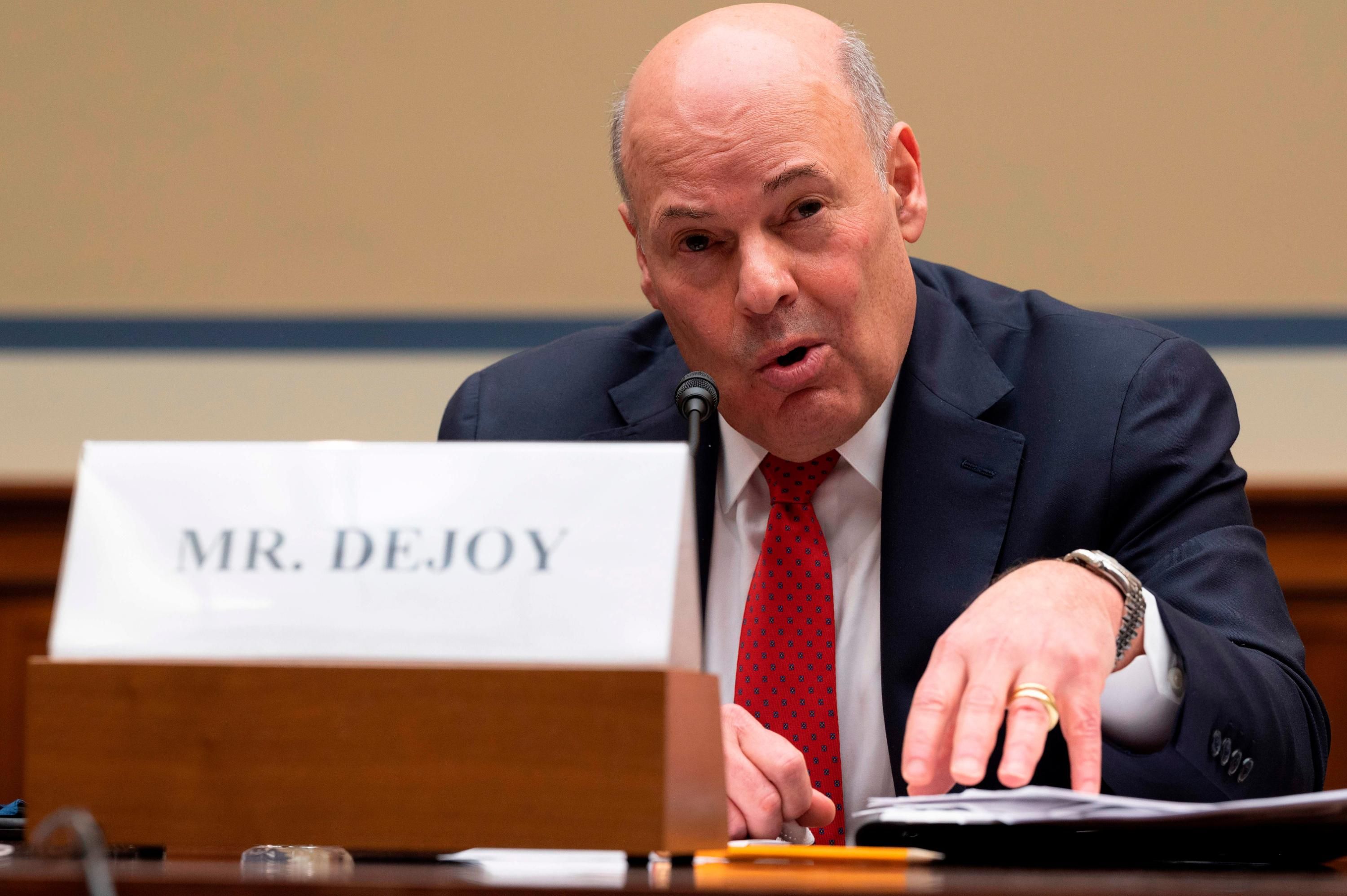
U.S. Postal Service Postmaster General Louis DeJoy speaks during a House Oversight and Reform Committee hearing on February 24, 2021. (Photo: Jim Watson/Pool/AFP via Getty Images)
JAKE JOHNSON
President Joe Biden won applause Friday for moving to replace Ron Bloom and John Barger, two members of the U.S. Postal Service Board of Governors who've shown unwavering loyalty to scandal-plagued Postmaster General Louis DeJoy even as he's dramatically worsened mail delivery performance.
"It's affirmatively good to remove Bloom and Barger from the board, men who said they were 'tickled pink' with DeJoy's actions."
But replacing Bloom—a Democrat and the USPS board's current chairman—and Barger, a Republican, is just the first step toward rescuing the mail service from the ongoing right-wing assault, progressive advocates and Democratic lawmakers stressed Friday.
Rep. Bill Pascrell Jr. (D-N.J.) called Biden's decision to replace Bloom "great news," slamming the outgoing postal board chair as DeJoy's "chief enabler and cheerleader."
"Now fire DeJoy," Pascrell added.
On Friday, Biden nominated former General Services Administration official Daniel Tangherlini and Derek Kan—a Republican and the former deputy director of the Office of Management and Budget—to replace Bloom and Barger.
If Biden's picks are confirmed by the Senate, his nominees will have a majority on the nine-member postal board—enough votes to remove DeJoy.
Bloom and Barger were both nominated to the postal board by former President Donald Trump, who repeatedly attempted to sabotage the USPS ahead of the 2020 presidential election, which relied heavily on mail-in ballots amid the coronavirus pandemic.
DeJoy—a Trump donor—was selected to head the USPS by the postal board in May of 2020. Upon taking charge of the agency in June, DeJoy wasted little time moving to overhaul mail service operations and slow package delivery.
Last month, DeJoy's decade-long plan for the USPS took effect as experts and Democratic lawmakers warned the changes would ensure the continued decline of Postal Service performance for years to come.
Lisa Graves, executive director of True North Research, told Common Dreams on Friday that Bloom and Barger "disqualified themselves from serving in positions of public trust by their enthusiastic support for Trump donor Louis DeJoy despite all the ways DeJoy has harmed the American people through his dictates, including charging people more for slower and less reliable mail."
"They failed to object to his 'ten-year' plan to weaken the service standards or to DeJoy continuing to receive millions each year from an arrangement he has with his former company, a contractor of the Postal Service that got a $100+ million contract to outsource postal work, among other things," Graves noted. "It's affirmatively good to remove Bloom and Barger from the board, men who said they were 'tickled pink' with DeJoy's actions."
Related Content

'Dereliction of Duty': Outrage as USPS Board Issues Gushing Praise for DeJoy Amid Mail Slowdowns, Medicine Delays, and Straw-Donor Scandal
While Graves expressed concern over Biden's choice to replace Bloom and Barger with Tangherlini and Kan—calling them "not the right people at all" for the roles—she said the transition will be "an opportunity for the Postal Service to move in a new direction, given the destructive path chosen by DeJoy and enabled by Trump's appointees."
The Washington Post reported Friday that Biden's decision to remove Bloom—who's currently serving a one-year holdover term that expires in December—"came as a surprise to the postal industry and policymakers in Washington."
"Bloom as recently as last week told confidants he expected to be renominated," according to the Post. "Last week, Trump appointees on the governing board reelected him as chairman over the objections of Biden-appointed Democrats."
The Post noted that at least four members of the Senate Democratic caucus—Sens. Kirsten Gillibrand (D-N.Y.), Jeff Merkley (D-Ore.), Tammy Baldwin (D-Wis.), and Bernie Sanders (I-Vt.)—have pointed to Bloom's enthusiastic support for DeJoy as a reason to oust him from the postal board.
"We need a Postal Service board of governors that is committed to replacing Mr. DeJoy with a postmaster general who will protect and strengthen the Postal Service, not undermine and sabotage it," Sanders told the Post.
In a statement on Friday, Rep. Gerry Connolly (D-Va.) said he's "tickled pink that two DeJoy enablers" are on the verge of being replaced.
"This action is a good thing for the Postal Service and, most importantly, a great thing for the American people," he added.
Our work is licensed under Creative Commons (CC BY-NC-ND 3.0). Feel free to republish and share widely.

U.S. Postmaster General Louis Dejoy speaks during a House Oversight and Reform Committee hearing on Capitol Hill in Washington, D.C., on February 24.
Nov. 19 (UPI) -- President Joe Biden on Friday nominated two Derek Kan and Daniel Tangherlini to positions on the U.S. Postal Service's governing board.
They'll replace two allies of Postmaster General Louis DeJoy whose terms are expiring -- Ron Bloom and John Barger.
The announcement comes after more than a year of scrutiny of DeJoy, whose plans to cut costs at the USPS have led to slower mail delivery times and worries over mail-in ballots ahead of the 2020 presidential election.
The FBI, meanwhile, launched an investigation over the summer into DeJoy over an alleged private sector campaign finance scheme. He was accused of pressuring employees to donate to Republican candidates in exchange for reimbursement through bonuses while he was leading North Carolina-based New Breed Logistics from 2000-14.
The USPS board of governors selects the postmaster general and even after the replacement of two of DeJoy's allies, his position is likely still secure. White House press secretary Jen Psaki said Friday that Biden doesn't have the authority to replace DeJoy, but that the administration is "deeply troubled" by the job he's doing.


